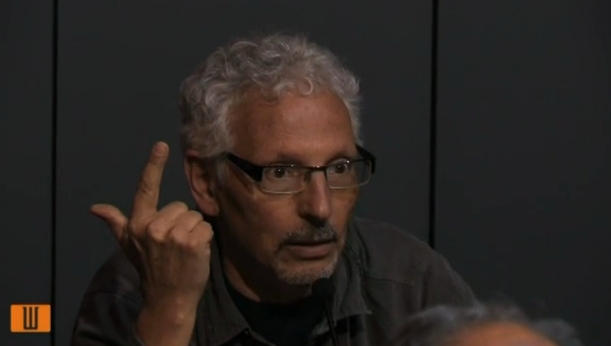06.05.2014 - 11:54
The president of the Catalan Government, Artur Mas, may substitute the agreed on question for the November 9 referendum if offered a serious proposal by the Spanish Government, according to Judge Santiago Vidal in a conference held at VilaWeb last night as he presented his new book, “Set pecats capitals de la justícia” (The Seven Deadly Sins of the Justice System”. According to Vidal, Mas would only do that if the offer to Catalonia from Madrid is formalized before October 19, the deadline for calling the referendum.
“On November 9, we will go to the polls for sure,” said Vidal. And he explained the four hypotheses that are on the table:
Hypothesis 1: “That we vote on the current question.”
Hypothesis 2: “If there is a serioius proposal before October 19, consisting of an assymetric financing system, similar or better than the Basque economic agreement, with completely safeguarded rights regarding culture, language, healthcare… If this offer materializes, President Mas, in the decree with which he calls the referendum will say, “Citizens, I am calling you to go to the polls on November 9 to decide whether you accept or reject this proposal.” And no one will be able to say to him, “But you said there would be a question.” He would respond, completely in his right, “When the five political parties and I expressed our support for the double question, the situation was completely different. There was no offer on the table. First, decide if we accept it or not. If you decide that you don’t, no problem. On January 9, 2015, in just a few extra months, we will vote on the agreed upon question. If we have had to wait three hundred years, a couple of months won’t make a difference.”
“If the offer that comes from the Spanish Government is not worth it, he will make a determination himself. If the offer is serious, he has the obligation of asking the other five political parties and the people of Catalonia about it.”
Hypothesis 3: “On October 19th, the decree calling for a referendum on independence is issued and on the 20th or 21st, the Spanish Government suspends it, and suspends the Law of Consultations and asks for the Constitutional Court to suspend it. Two things might happen: that the Constitutional Court is smart and says that it won’t suspend anything, that it is a political matter, and that it must be decided through political means, that they are just there to decide on the rules. In that case, on November 9, we will go vote on a referendum which has been neither authorized nor prohibited. Simply tolerated.
Hypothesis 4: “That the Constitutional Court temporarily suspends the decree, prohibits the referendum, and suspends the Statute of Autonomy in accordance with Article 155. But if that resolution should come from the Constitutional Court, the Parliament of Catalonia should leave it in the drawer and say, “They can come here and make us, if they want.” And how would they impose their will? It’s impossible. I can tell you first hand that Brussels has made it very clear to the Spanish Government that this must be solved through negotiation. How is a prohibition in the Official State Bulletin going to stop the citizens of Catalonia from going to vote?



